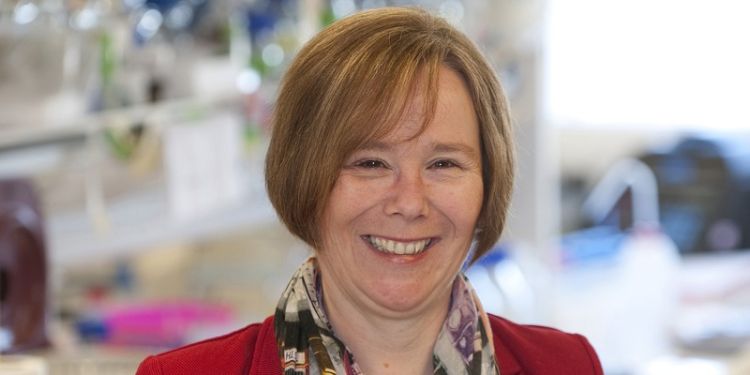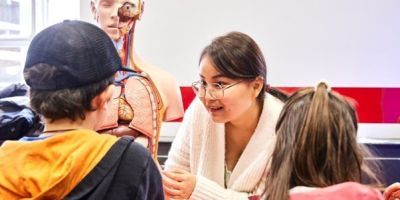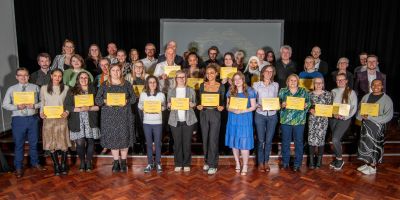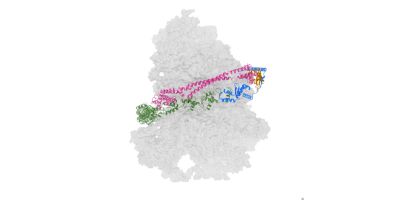Leeds academic Professor Sheena Radford wins prestigious Centenary Award from the Biochemical Society

The award recognises a ‘biochemist of distinction’ whose research impact and commitment to build, support, and nurture talent has helped transform the scientific community.
Sheena Radford, Professor of Biophysics and Royal Society Research Professor in the Astbury Centre for Structural Molecular Biology and the School of Molecular and Cellular Biology, has received the Centenary award for her contribution to research.
Professor Radford, whose research focuses on the mechanisms by which proteins fold and how protein misfolding contributes to disease, was recognised for originality, impact and quality of research, as well as her outstanding mentorship.
I am delighted and humbled to receive this award. I have been a member of the Biochemical Society since I was an undergraduate, which makes it even more special for me.
She added “I have been lucky to have worked with a fantastic group of talented early career scientists and collaborators both in the Astbury Centre at Leeds and across the globe. I thank them all. The very best of science is performed in collaborative and supportive teams. If I have helped to promote that working ethos, and to help others, then I have done my job!”
Professor Radford joined University of Leeds in 1995 after completing her PhD in Biochemistry at the University of Cambridge and postdoctoral research in Oxford as a Royal Society University Research Fellow.
She has since taken several leadership positions at Leeds including being a founding member and Director of the Astbury Centre for Structural Molecular Biology, as well as serving on numerous journal editorial boards and major research funding panels, some of which have catapulted Early Career Researchers in their careers.
Her research discoveries have been published in more than 330 peer-reviewed papers and she has given more than 420 invited lectures at national and international conferences across Europe, Asia and America.
The originality of her work and contributions to science and the scientific community has earned Professor Radford accolades, including Fellowships of the Royal Society (FRS) and the Academy of Medical Sciences (FMedSci). She was also the first female recipient of The Colworth Medal.
In 2020, she was made Most Excellent Order of the British Empire (OBE) for her services to molecular biology.
Her most recent research focuses on how and why proteins form amyloid, clumps of misfolded proteins that are associated with a range of diseases, such as Alzheimer’s and Parkinson’s disease, as well as Type 2 Diabetes.
The lab is also exploiting knowledge of protein folding to explore how bacteria fold proteins to assemble their cells walls, as part of the global effort to tackle the increasing resistance of bacteria to antibiotics.
Working with biopharma, the lab is also working to develop new strategies to protect protein drugs misfolding in manufacture.
The field of protein folding has never been more exciting. I hope that this award will inspire others to join our community and help to tackle the exciting question of how proteins are folded and assembled and the dire consequences caused when protein folding goes wrong.
The award comes with a centenary medal designed by artist Tom Philips, the opportunity to present the Sir Frederick Gowland Hopkins Memorial Lecture at a Biochemical Society event and £3,000 prize money.
Professor Steve Busby, Professor of Biochemistry at the University of Birmingham, and Chair of the Biochemical Society’s Awards Committee, said:
"My personal congratulations go to all the outstanding winners announced today. The list of the 2025 Biochemical Society award-winners is impressive and, of course, we have a wonderful mix of awardees, since each prize is targeted to a different section of our community.
“As well as congratulating the winners, I want to say thanks for all the hard work put in by nominators and supporters whose continued support allows us to recognise outstanding achievement and research every year.”




